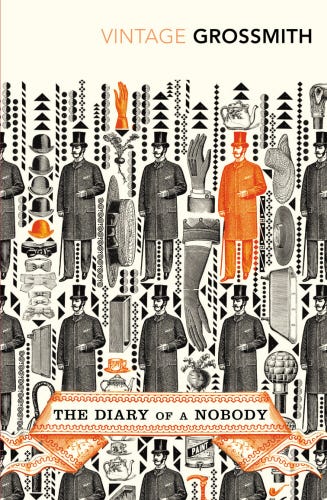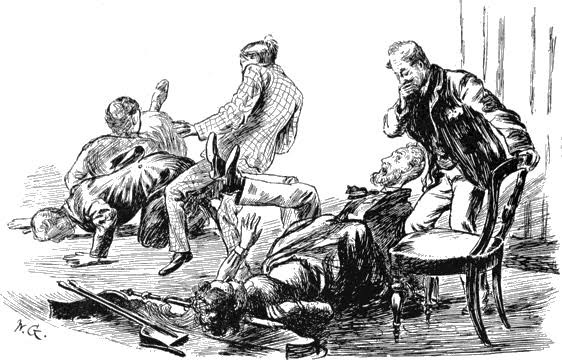An Ode to the Happy Medium: The Diary of a Nobody by George and Weedon Grossmith
... doesn’t it seem odd that Gowing’s always coming and Cummings’ always going?
Mr. Pooter started recording his daily life in a diary and wants to publish it, because why not? He has seen enough memoirs of people he has never heard of. Society may consider him a nobody, a suburban, non-aspirational, middle-aged clerk commanding no great societal respect. In the words of Mr. Huttle, he is 'the happy medium' and 'nothing more or less than a vulgar half measure'. But Mr. Pooter enjoys his life with all its ups and downs. He has intimate friends like Cummings and Gowing who call upon him every other day, and even if they don't, he and his wife Carrie can manage to pass their evenings without company.
The diary of A Nobody is a comic novel by brothers George and Weedon Grossmith that appeared as a serial in Punch magazine and was published as a book in 1892. A beloved novel of many and generally considered on par with Three Men in a Boat by Jerome K. Jerome, the book is written as a daily diary of Mr. Pooter, an ordinary person living an ordinary life. While George Grossmith is responsible for the text, Weedon has drawn some great illustrations that capture the essence of the story.
I was hooked on the first page when I read the names of the intimate friends of Mr. Pooter: Mr. Cummings and Mr. Gowing. That set the overall tone of the book for me. Written in the typical matter-of-fact style of diary records, it doesn't have a solid structure or an engrossing narrative. But the book is all charm and hilarity. His interactions with his nasty friends and rude vendors, his bumbling into social events, his tumultuous relationship with his son, and his love for his wife—there is not a single paragraph in this book that doesn't make you laugh at and for Mr. Pooter.
Mrs. Caroline Pooter, the strict but loving wife and caring mother, is a worthy partner in crime. She takes part in all of her husband's misadventures and bears his friends, though she never approves of them. Lupin Pooter, the only son of the couple, formerly Willie, who changed his name much to the chagrin of his father, is another great character. His disinterest in staying in a job and longing to come up in life without working for it contrast with his father's loyalty to his firm and general contentment. The generational difference portrayed in the novel stands the test of time, even after 140 years.
Anyone who reads The Diary of a Nobody will identify with some elements of these characters. But if there are any readers who feel they don't, surely they are the embodiment of Mr. Pooter. Because he is the only one who never identifies and agrees that the joke is on him, even though he records all of them faithfully. But when all is said and done, the final triumph is his—in the plot and in his reader's mind.
Charlie dear, it is I who have to be proud of you. And I am very, very proud of you. You have called me pretty; and as long as I am pretty in your eyes, I am happy. You, dear old Charlie, are not handsome, but you are good, which is far more noble.




Sounds like a nice, idyllic read.